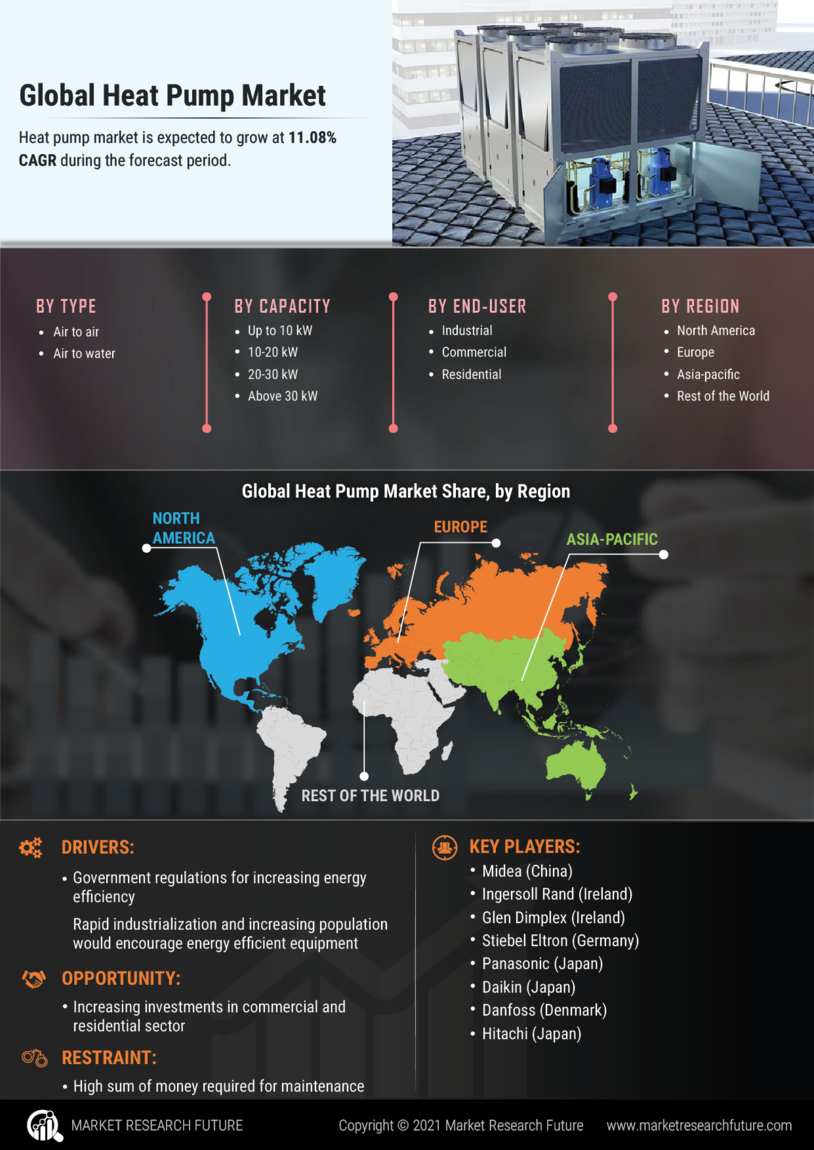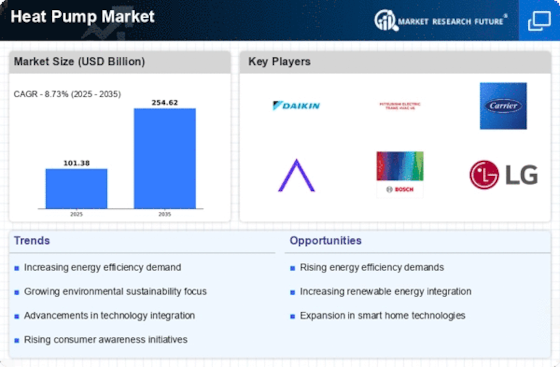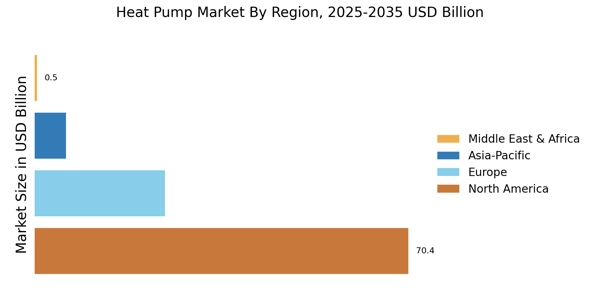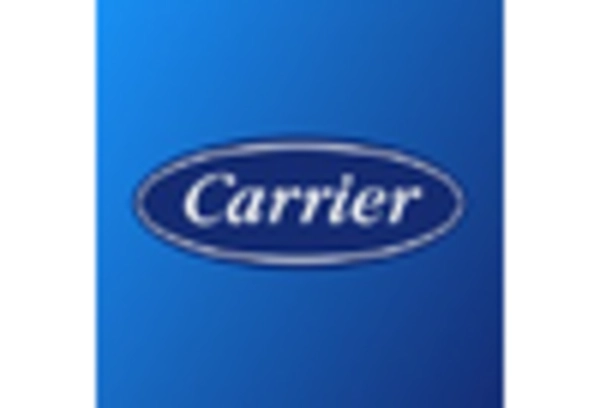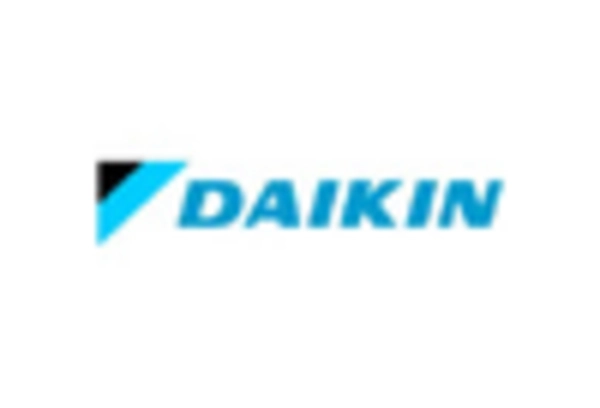Rising Energy Costs
The escalating costs of conventional energy sources are propelling the Heat Pump Market forward. As consumers face higher utility bills, there is a growing inclination towards energy-efficient alternatives like heat pumps. These systems utilize renewable energy sources, which can lead to substantial savings over time. Recent data indicates that households using heat pumps can reduce their heating costs by up to 50% compared to traditional systems. This financial incentive, coupled with the increasing awareness of energy conservation, is likely to drive demand for heat pumps. Consequently, the Heat Pump Market is poised for growth as more consumers seek cost-effective and sustainable heating solutions.
Regulatory Support for Energy Efficiency
The Heat Pump Market is experiencing a surge in regulatory support aimed at enhancing energy efficiency. Governments are implementing stringent energy efficiency standards and offering incentives for the adoption of heat pump systems. This regulatory framework encourages consumers and businesses to invest in heat pumps, which are recognized for their lower energy consumption compared to traditional heating systems. For instance, energy efficiency programs have been linked to a projected increase in heat pump installations by approximately 30% over the next five years. Such initiatives not only promote environmental sustainability but also contribute to significant cost savings for end-users, thereby driving the growth of the Heat Pump Market.
Increased Awareness of Environmental Impact
There is a growing consciousness regarding environmental sustainability, which is significantly influencing the Heat Pump Market. Consumers are increasingly aware of the carbon footprint associated with traditional heating methods and are seeking greener alternatives. Heat pumps, which utilize renewable energy sources, are perceived as a viable solution to reduce greenhouse gas emissions. Recent surveys indicate that over 60% of consumers are willing to invest in energy-efficient technologies to mitigate their environmental impact. This shift in consumer behavior is likely to bolster the demand for heat pumps, as individuals and businesses alike strive to adopt more sustainable practices, thereby propelling the Heat Pump Market forward.
Urbanization and Infrastructure Development
The ongoing trend of urbanization is contributing to the expansion of the Heat Pump Market. As urban areas continue to grow, there is an increasing demand for efficient heating and cooling solutions in residential and commercial buildings. Heat pumps are particularly well-suited for urban environments due to their compact design and ability to provide both heating and cooling. Furthermore, infrastructure development projects often incorporate energy-efficient technologies, including heat pumps, to meet sustainability goals. This trend is expected to drive a significant increase in heat pump installations in urban settings, thereby enhancing the overall growth of the Heat Pump Market.
Technological Innovations in Heat Pump Design
Technological advancements are playing a pivotal role in shaping the Heat Pump Market. Innovations such as variable speed compressors, smart thermostats, and enhanced refrigerants are improving the efficiency and performance of heat pumps. These developments not only enhance the operational efficiency of heat pumps but also expand their applicability across various climates and building types. For example, the introduction of inverter technology has allowed heat pumps to operate efficiently in extreme temperatures, thereby broadening their market appeal. As these technologies continue to evolve, they are expected to drive further adoption of heat pumps, reinforcing the growth trajectory of the Heat Pump Market.
